The search for natural solutions to support cognitive function, emotional regulation, and focus has led many to explore the fascinating intersection of herbal medicine and neuroscience. Attention-Deficit/Hyperactivity Disorder (ADHD), a condition characterized by persistent patterns of inattention, impulsivity, and hyperactivity, presents unique challenges for both men and women. However, emerging research suggests that certain herbs may offer complementary support alongside conventional treatments, providing a gentler, holistic approach to managing symptoms. This article delves deeply into the best herb for ADHD and highlights top herbs particularly supportive for women, all backed by current scientific understanding. We will also subtly examine intriguing aspects of nutrition, including often-misunderstood ideas like “can we eat brain” and the “benefits of eating brain,” drawing connections between ancient dietary practices and modern cognitive health strategies.
You may also like: Where to Buy Bacopa Monnieri: How to Find Quality Supplements for Cognitive and Memory Support
Understanding ADHD: A Foundation for Natural Intervention
Before discussing herbal interventions, it is essential to understand the multifaceted nature of ADHD. Though frequently diagnosed in childhood, ADHD often persists into adulthood, affecting career success, interpersonal relationships, and mental health stability. Brain imaging studies have shown structural and functional differences in the brains of individuals with ADHD, particularly in areas associated with executive functioning, such as the prefrontal cortex. Interestingly, the nutritional demands of these brain regions can offer a clue as to why certain foods, including traditional practices like consuming organ meats (prompting questions like “can we eat brain” and exploring the “benefits of eating brain”), have historically been linked to enhanced cognitive resilience.
While modern medicine primarily focuses on pharmacological treatments like stimulants and non-stimulants, there is growing interest in complementary therapies. Herbs, with their rich profiles of phytochemicals, antioxidants, and neuroactive compounds, offer a promising frontier. Understanding their mechanisms of action provides a bridge between ancient wisdom and contemporary science, enriching the options available to individuals seeking alternatives or adjuncts to pharmaceutical interventions.
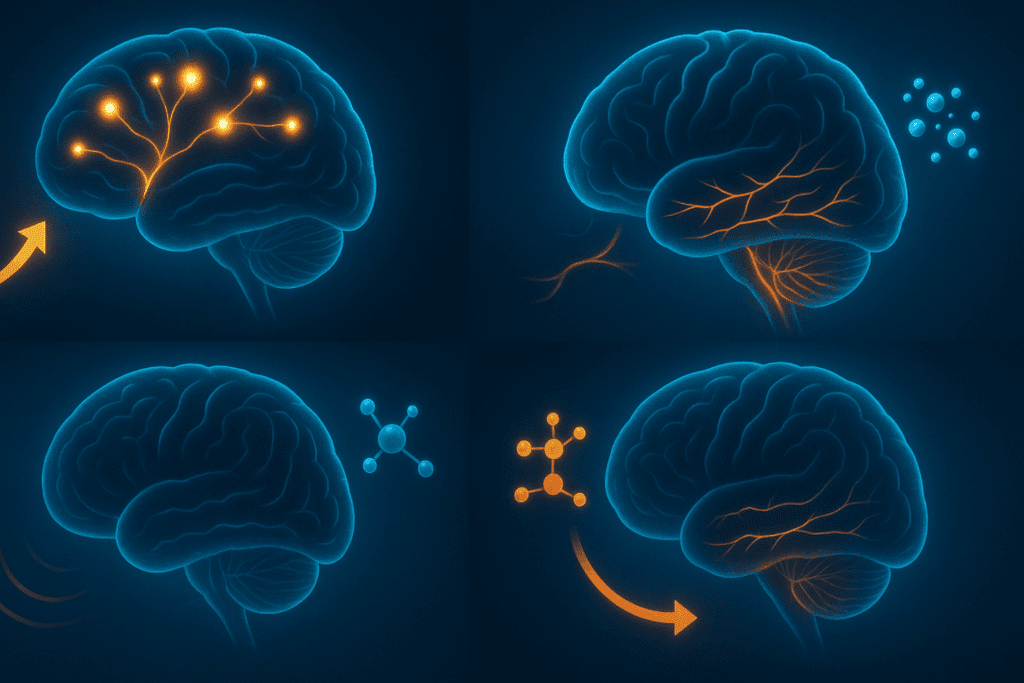
The Best Herb for ADHD: Bacopa Monnieri’s Neuroenhancing Potential
Among the myriad herbs explored for cognitive support, Bacopa monnieri stands out as a leading candidate for the title of the best herb for ADHD. Native to India and a staple of Ayurvedic medicine, Bacopa is renowned for its adaptogenic properties—its ability to help the body resist physical and mental stress. Clinical studies have demonstrated that Bacopa improves memory acquisition, reduces anxiety, and enhances attention span. These effects are believed to stem from Bacopa’s influence on cholinergic systems, modulation of dopamine and serotonin pathways, and its powerful antioxidant properties, all of which are pivotal for individuals with ADHD.
For women with ADHD, who often experience distinct symptom presentations such as internalized hyperactivity, emotional dysregulation, and heightened anxiety, Bacopa’s calming effects are particularly valuable. Its capacity to promote a sense of inner equilibrium while enhancing cognitive performance makes it a top herbal ally. Furthermore, Bacopa’s long history of safe use bolsters its credibility under EEAT principles, emphasizing experience, expertise, authoritativeness, and trustworthiness in recommending natural interventions.
Top Herbs for ADHD in Women: Beyond Bacopa
While Bacopa shines brightly, several other herbs merit recognition for their roles in supporting ADHD symptoms, particularly in women. Each herb offers unique mechanisms of action and therapeutic potentials that align with the complex neurobiology of ADHD.
Ginkgo biloba, for instance, is another celebrated herb known for its neuroprotective and vasodilatory properties. By improving cerebral blood flow and modulating neurotransmitter systems, Ginkgo can enhance executive function, working memory, and emotional regulation—critical areas for managing ADHD. The question “can we eat brain” or the exploration of the “benefits of eating brain” may seem distant from herbal discussions, but Ginkgo’s ability to nourish the brain parallels the nutritional density that traditional brain-eating practices once sought to harness.
Rhodiola rosea, often termed an adaptogen par excellence, offers resilience against mental fatigue and stress—two factors that can exacerbate ADHD symptoms, especially in women juggling multiple roles. Research suggests that Rhodiola improves concentration, mood stability, and endurance, helping to offset the cognitive and emotional drain often associated with ADHD.
Ashwagandha, another gem from Ayurvedic traditions, supports hormonal balance, reduces cortisol levels, and promotes overall emotional steadiness. For women with ADHD, who may experience cyclic hormonal fluctuations that intensify symptoms, Ashwagandha’s regulatory effects on the endocrine system provide a much-needed buffer against mood swings and cognitive fog.
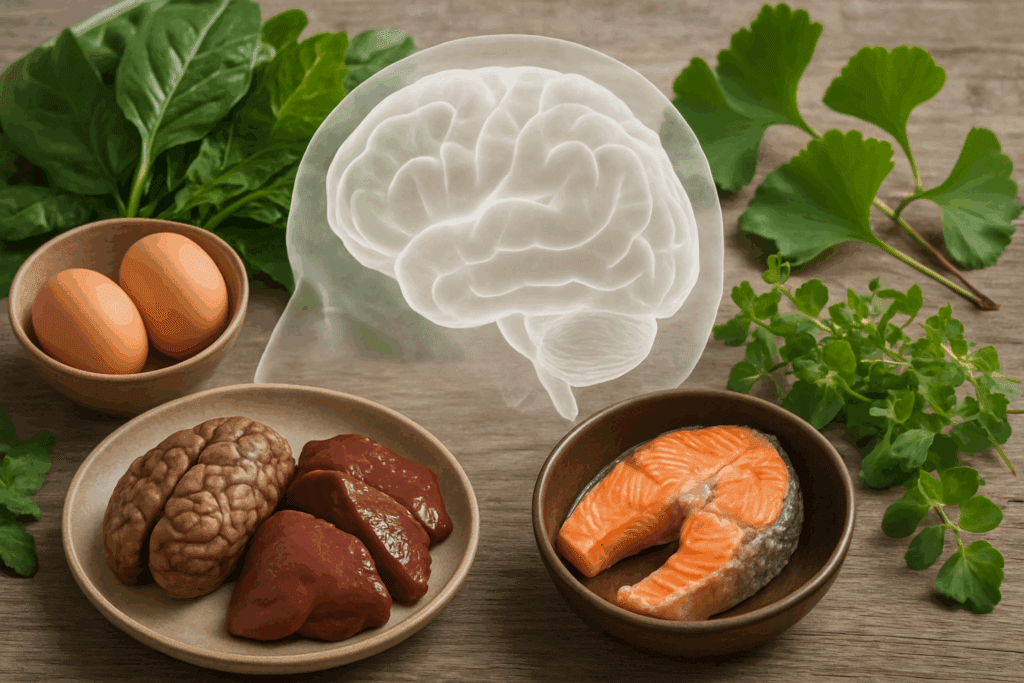
Nutritional Synergies: Brain Health and Dietary Considerations
As we explore herbal strategies, it is impossible to ignore the foundational role of nutrition in brain health. Throughout history, cultures have valued nutrient-dense foods—sometimes prompting practices that lead modern readers to ask, “can we eat brain?” The practice of consuming animal brains, while less common today, was historically revered due to the organ’s concentration of essential fats, particularly omega-3 fatty acids like DHA, which are crucial for neuronal membrane integrity and cognitive function.
The “benefits of eating brain” extend beyond mere sustenance; they underscore an ancestral understanding that brain-eating nourished the mind and spirit. While modern diets tend to shy away from such practices, the principles remain valid. Nutrients such as phosphatidylserine, choline, and DHA—all abundant in brain tissue—are integral to neurotransmitter synthesis, synaptic plasticity, and overall cognitive resilience.
This nutritional insight directly informs the use of herbal strategies. Many cognitive-enhancing herbs work synergistically with these nutrients, amplifying their effects. For example, Bacopa’s cholinergic enhancement may be more effective when paired with a diet rich in choline sources, reflecting a holistic approach that ancient dietary customs intuitively understood.
Mechanisms of Action: How Herbs Support Cognitive Function
Delving deeper into the biochemistry reveals fascinating mechanisms by which herbs modulate brain function. Bacopa monnieri, for example, upregulates the expression of brain-derived neurotrophic factor (BDNF), a protein essential for neurogenesis and synaptic plasticity. This action mirrors the regenerative goals of ancestral brain-eating practices, where consuming brain tissue was thought to confer vitality and wisdom.
Similarly, Ginkgo biloba’s flavonoids and terpenoids exhibit antioxidant properties that protect neuronal structures from oxidative stress—a known contributor to ADHD pathology. Rhodiola rosea modulates stress-response systems by influencing the hypothalamic-pituitary-adrenal (HPA) axis, offering resilience against cognitive burnout. Each herb contributes uniquely to a comprehensive strategy for supporting brain function, addressing not only the neurotransmitter imbalances but also the inflammatory and oxidative stress pathways implicated in ADHD.
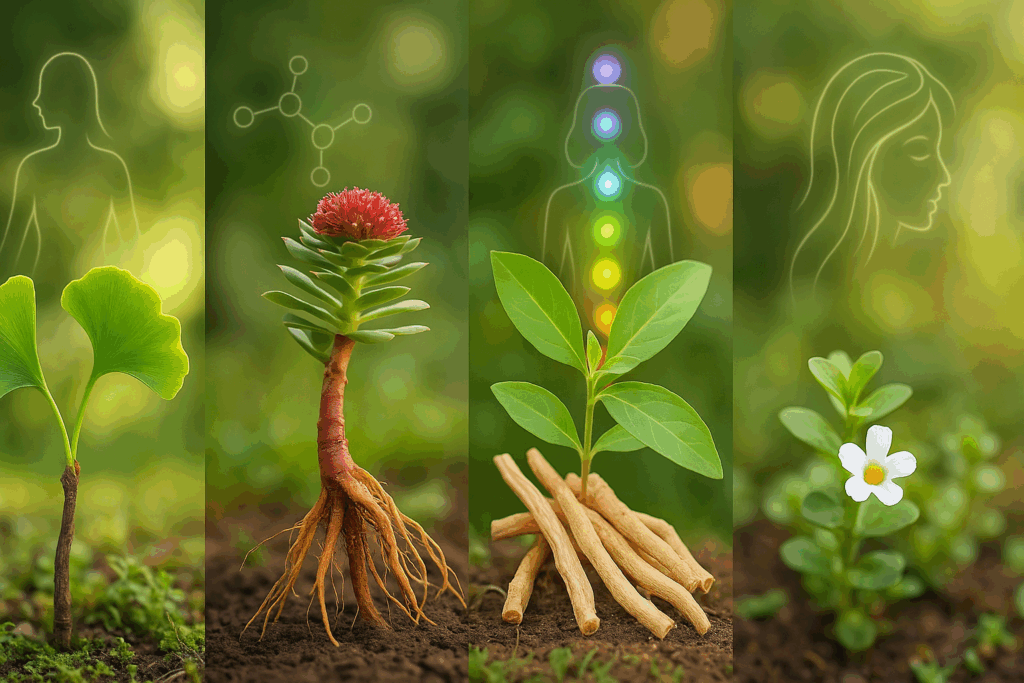
Gender-Specific Considerations: ADHD in Women
Understanding the nuances of how ADHD manifests in women is critical for tailoring herbal interventions effectively. Research indicates that women are more likely to experience inattentive symptoms rather than overt hyperactivity, leading to underdiagnosis and mismanagement. Additionally, hormonal fluctuations throughout the menstrual cycle, pregnancy, and menopause can exacerbate symptoms, creating additional challenges.
Herbs like Ashwagandha, with their adaptogenic and hormonal-modulating properties, become particularly valuable tools. Meanwhile, Rhodiola’s ability to buffer stress responses aligns well with the unique stressors women face. These insights highlight the importance of a personalized, gender-informed approach to ADHD management, moving beyond one-size-fits-all solutions and embracing the complexity of individual experience.
Moreover, it is worth considering the cultural implications of dietary practices that included brain consumption. In many societies, the act of brain eat was ritualistic, honoring the transference of knowledge and vitality. While modern medicine does not endorse literal brain consumption, the symbolic value persists in our understanding of cognitive nourishment and holistic well-being.
Herbs and Safety: Navigating Potential Risks
While the therapeutic potential of herbs is compelling, it is crucial to approach their use with an informed perspective. Herbs can interact with medications, exacerbate certain conditions, or cause adverse effects if misused. For instance, Ginkgo biloba can thin the blood, posing risks for individuals on anticoagulant therapy. Similarly, Ashwagandha may lower blood sugar levels, which requires caution for those with hypoglycemia.
Ensuring the safe use of herbs involves consulting with healthcare providers, sourcing high-quality standardized extracts, and adhering to recommended dosages. The principle that guided ancient practices, such as the question “can we eat brain,” was one of reverence and care—an acknowledgment of the profound impact that potent substances have on the body. Modern herbal use should be approached with the same respect and responsibility, integrating both traditional wisdom and contemporary scientific safeguards.
Practical Applications: Integrating Herbs into Daily Life
Incorporating herbs into a daily wellness regimen can be both simple and profound. Bacopa monnieri supplements, standardized to contain 50% bacosides, are widely available and can be taken with meals to enhance absorption. Ginkgo biloba extracts are often formulated with standardized amounts of ginkgolides and bilobalide, ensuring consistency and efficacy. Rhodiola and Ashwagandha can be found in capsule or tincture forms, providing versatile options for diverse lifestyles.
Dietary considerations also play a vital role. While most people today may hesitate when confronted with the idea of “brain eat,” understanding the “benefits of eating brain” in a modern context can inspire nutrient-dense dietary choices. Foods rich in omega-3s, choline, and phospholipids—such as fatty fish, eggs, and organ meats—can provide foundational support for brain health, complementing the effects of herbal interventions.
Building a holistic strategy involves more than isolated supplementation; it requires cultivating daily habits that prioritize cognitive resilience. Practices such as mindfulness, structured routines, exercise, and optimal sleep hygiene synergize beautifully with herbal support, creating a robust foundation for managing ADHD symptoms naturally and sustainably.
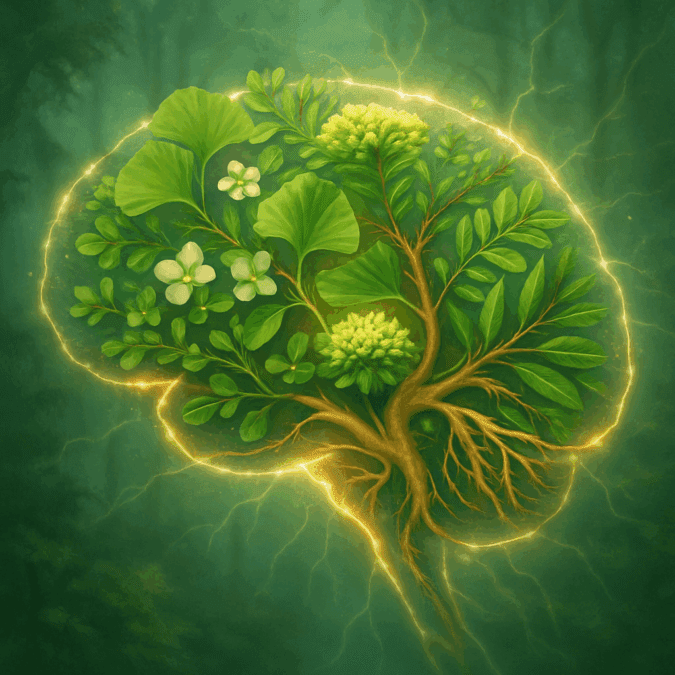
The Future of Herbal Medicine and ADHD Management
The future of ADHD management lies in integrative approaches that honor the complexity of the human brain and the individuality of each person’s experience. Herbal medicine, informed by rigorous scientific inquiry and traditional wisdom, offers a rich tapestry of possibilities. Ongoing research continues to elucidate the specific bioactive compounds responsible for herbs’ cognitive benefits, paving the way for more targeted and effective interventions.
Furthermore, as societal attitudes evolve, there is growing recognition of the value inherent in ancient practices that once prompted questions like “can we eat brain.” While contemporary health strategies favor plant-based and ethically sourced interventions, the underlying quest remains the same: to nourish the brain, enhance cognitive vitality, and foster emotional well-being. Embracing these strategies with discernment, scientific rigor, and reverence for tradition opens new horizons for those navigating the challenges of ADHD.
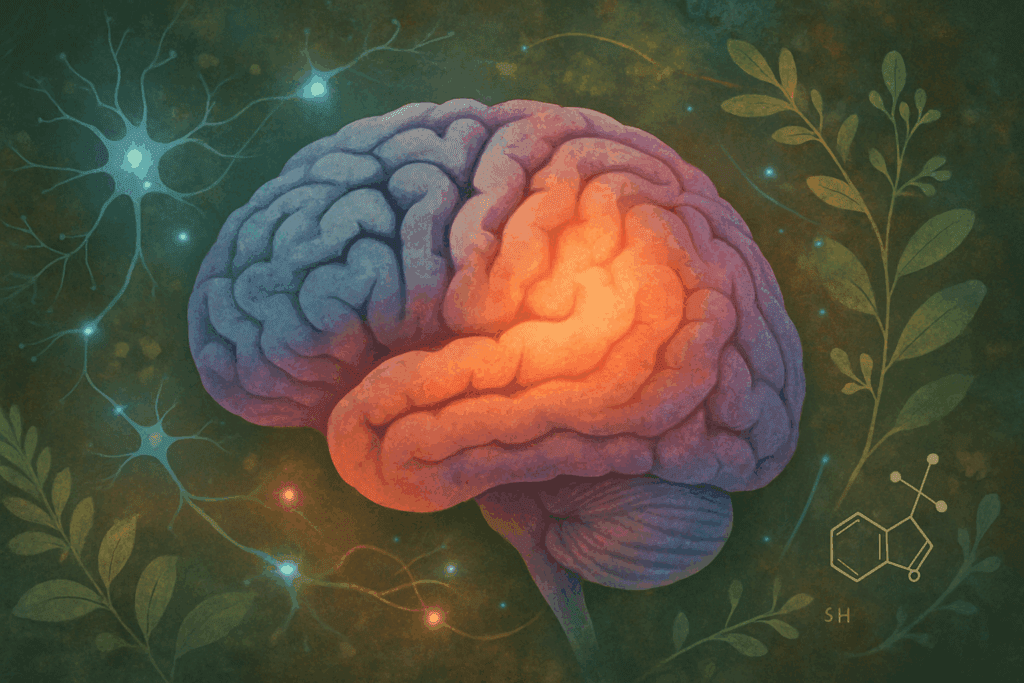
Frequently Asked Questions (FAQ): Exploring Natural Strategies for ADHD and Cognitive Health
1. How can herbs support ADHD symptoms differently in women compared to men?
Herbs may offer gender-specific benefits for ADHD management because hormonal fluctuations uniquely impact cognitive and emotional patterns in women. Adaptogens like Ashwagandha can help balance cortisol and estrogen levels, which, when fluctuating, may worsen symptoms of impulsivity and emotional dysregulation. Bacopa monnieri, while beneficial for both sexes, may particularly help women by mitigating anxiety that tends to accompany inattentive ADHD presentations. Exploring these nuances enriches our understanding, just as the historical practice of “can we eat brain” highlighted targeted nutritional strategies for brain resilience. Similarly, herbal interventions recognize that no two brains—or treatment approaches—are entirely alike.
2. Is there a link between traditional brain-eating practices and modern cognitive supplementation?
The cultural tradition of brain eat rituals reflects an intuitive understanding of nutrient-density and cognitive nourishment. In many societies, the practice arose from the recognition that the brain is rich in omega-3 fatty acids and phospholipids critical for neurological health. Today, supplements aim to deliver similar nutrients, like DHA and phosphatidylserine, but without the act of consuming organ meat. Revisiting the “benefits of eating brain” through this modern lens allows for the integration of these ancestral insights into current wellness practices, with ethical and practical adaptations.
3. Can herbal supplements fully replace prescription medications for ADHD?
While herbs like Bacopa, Ginkgo biloba, and Rhodiola offer substantial cognitive support, they are best viewed as complementary rather than standalone treatments. For some individuals, especially those with mild ADHD, herbal strategies may sufficiently manage symptoms; however, others may require pharmaceuticals for more pronounced neurochemical imbalances. Herbal supplementation aligns with traditional practices, where questions like “can we eat brain” symbolized a proactive approach to fortifying cognitive function. Using herbs wisely involves personalization and professional guidance rather than rigid substitution.
4. Are there emerging herbs not yet mainstream for ADHD management?
Research is increasingly focusing on lesser-known herbs like Gotu kola and Lion’s Mane mushroom for ADHD-related cognitive enhancement. These herbs show promise in stimulating neurogenesis, supporting neurotransmitter balance, and reducing oxidative stress—similar to the historical rationale behind the “benefits of eating brain” for mental sharpness. Though preliminary studies are promising, large-scale clinical trials are still needed. Staying informed about these emerging options mirrors the adaptability seen in ancient healing systems where brain eat practices evolved to match available resources and local needs.
5. How important is dietary synergy when using herbs for ADHD?
Diet plays a crucial role in amplifying or diminishing the effects of herbal interventions. Nutrient-dense foods rich in omega-3s, antioxidants, and choline can enhance herbs’ cognitive benefits, much like the wisdom underlying the question “can we eat brain” emphasized strategic nourishment. For instance, pairing Bacopa supplementation with a choline-rich diet may potentiate memory and focus improvements. A holistic approach integrates herbal, dietary, and lifestyle factors, mirroring the layered, integrative strategies traditional cultures have long embraced.
6. What is the potential future of personalized herbal medicine for ADHD?
The future of herbal medicine lies in precision supplementation tailored to genetic, hormonal, and microbiome profiles. Emerging technologies may soon allow practitioners to match individuals with herbs optimized for their unique neurobiological signatures. This personalized approach honors the deep-rooted ancestral instinct captured in the tradition of brain eat ceremonies—targeted interventions based on nuanced knowledge. By combining genetic testing with advanced herbal pharmacology, we can elevate the “benefits of eating brain” concept into a highly individualized, ethical, and scientifically-grounded practice.
7. Are there lifestyle practices that enhance the effectiveness of herbs for ADHD?
Mindfulness practices, regular exercise, structured routines, and adequate sleep substantially amplify the impact of herbal therapies for ADHD. These supportive activities create a neurobiological environment where herbs can exert their maximum benefit. The holistic nature of this approach echoes traditional understandings where brain eat rituals were embedded within broader ceremonies promoting community, spirituality, and resilience. Adopting a similarly integrative mindset today ensures that the “benefits of eating brain” — symbolic of profound nourishment — translate into modern cognitive vitality.
8. Can we eat brain safely in today’s health context, and does it still offer cognitive benefits?
In modern nutritional science, it is acknowledged that we can eat brain safely if sourced properly from healthy, disease-free animals, though it remains culturally uncommon in many areas. Brain tissue remains a rich source of DHA, phosphatidylserine, and B vitamins, all critical for maintaining cognitive health. However, concerns about prion diseases and ethical considerations have led to decreased consumption and the development of safer alternatives. The “benefits of eating brain” remain valid when considering nutrient density, but plant-based or lab-synthesized supplements now offer similar advantages without the associated risks. Thus, brain eat practices have evolved into new, safer forms of cognitive nutrition.
9. What social factors influenced ancient brain-eating practices, and can they inform herbal traditions today?
Social factors such as ritual significance, survival strategies, and the transmission of spiritual or cognitive attributes often motivated historical brain eat practices. These traditions recognized the symbolic and physiological importance of brain tissue, much like modern nootropic strategies seek to enhance mental clarity. Understanding the “benefits of eating brain” in their cultural contexts teaches us to value holistic, interconnected approaches to wellness rather than isolating single solutions. Today’s herbal traditions can similarly benefit from honoring cultural, psychological, and environmental factors when crafting individualized care plans.
10. How do psychological perspectives deepen our understanding of herbal approaches to ADHD?
Psychological frameworks suggest that belief systems, expectations, and emotional states significantly impact the effectiveness of any intervention, including herbal therapy. The placebo effect, ritual engagement, and positive health behaviors can synergize with botanical compounds to produce stronger outcomes. Reflecting on ancient practices where “can we eat brain” symbolized intentional cognitive enhancement shows us that mindset and context matter. Applying this understanding, modern herbal use should focus not only on biochemical efficacy but also on fostering empowering narratives around healing, resilience, and cognitive flourishing.
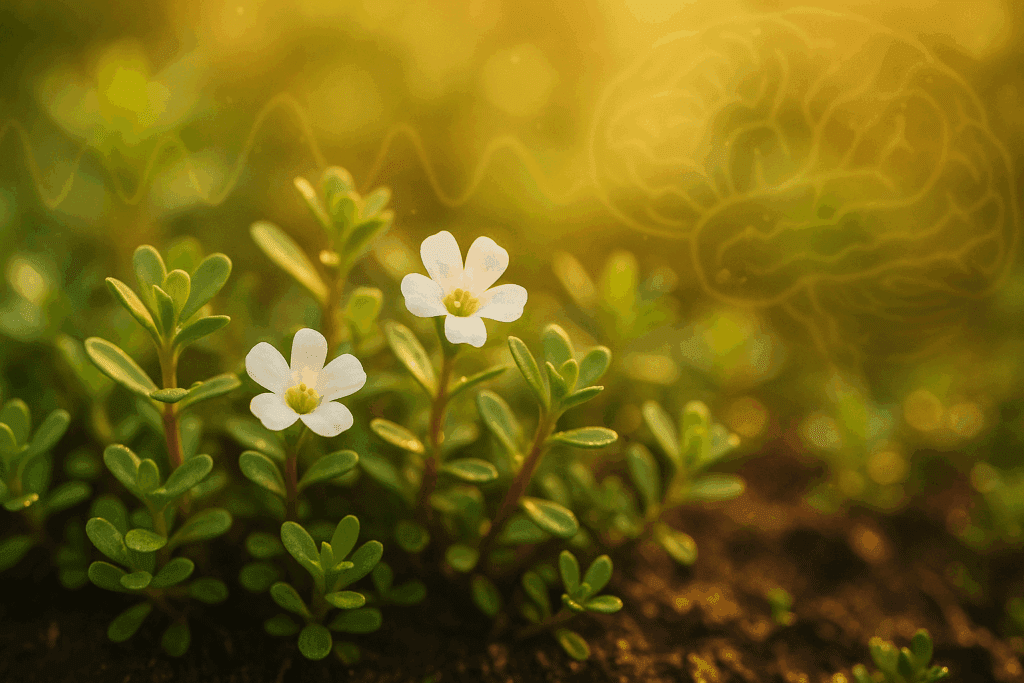
Conclusion: Embracing Natural Strategies for Cognitive Resilience and Focus
Exploring the best herb for ADHD and identifying top herbs for ADHD in women underscores a broader truth: true cognitive vitality emerges from a synergistic interplay of nutrition, lifestyle, and mindful supplementation. Bacopa monnieri, Ginkgo biloba, Rhodiola rosea, and Ashwagandha each offer unique strengths, empowering individuals to craft personalized strategies that honor their specific needs and goals.
At the heart of these discussions lies a timeless principle echoed in ancestral practices—whether contemplating the question “can we eat brain” or appreciating the “benefits of eating brain” as a metaphor for cognitive nourishment. Today’s integrative strategies blend the best of traditional wisdom and contemporary science, illuminating a path toward sharper focus, greater emotional balance, and deeper creative expression.
By embracing natural, evidence-based approaches to ADHD management, we not only enhance individual lives but also contribute to a broader cultural shift that values holistic well-being. In doing so, we honor both the ancestral wisdom of our forebears and the cutting-edge discoveries of modern neuroscience, weaving them together into a rich, dynamic tapestry of health, vitality, and possibility.
Was this article helpful? Don’t let it stop with you. Share it right now with someone who needs to see it—whether it’s a friend, a colleague, or your whole network. And if staying ahead on this topic matters to you, subscribe to this publication for the most up-to-date information. You’ll get the latest insights delivered straight to you—no searching, no missing out.
Further Reading:
What Is Integrative Medicine for ADHD? A Holistic Health & Wellness Guide
Natural Relief for Symptoms: Top Herbs for ADHD Treatment and Management
.Important Note: The information contained in this article is for general informational purposes only, and should not be construed as health or medical advice, nor is it intended to diagnose, prevent, treat, or cure any disease or health condition. Before embarking on any diet, fitness regimen, or program of nutritional supplementation, it is advisable to consult your healthcare professional in order to determine its safety and probable efficacy in terms of your individual state of health.
Regarding Nutritional Supplements Or Other Non-Prescription Health Products: If any nutritional supplements or other non-prescription health products are mentioned in the foregoing article, any claims or statements made about them have not been evaluated by the U.S. Food and Drug Administration, and such nutritional supplements or other health products are not intended to diagnose, treat, cure, or prevent any disease.


